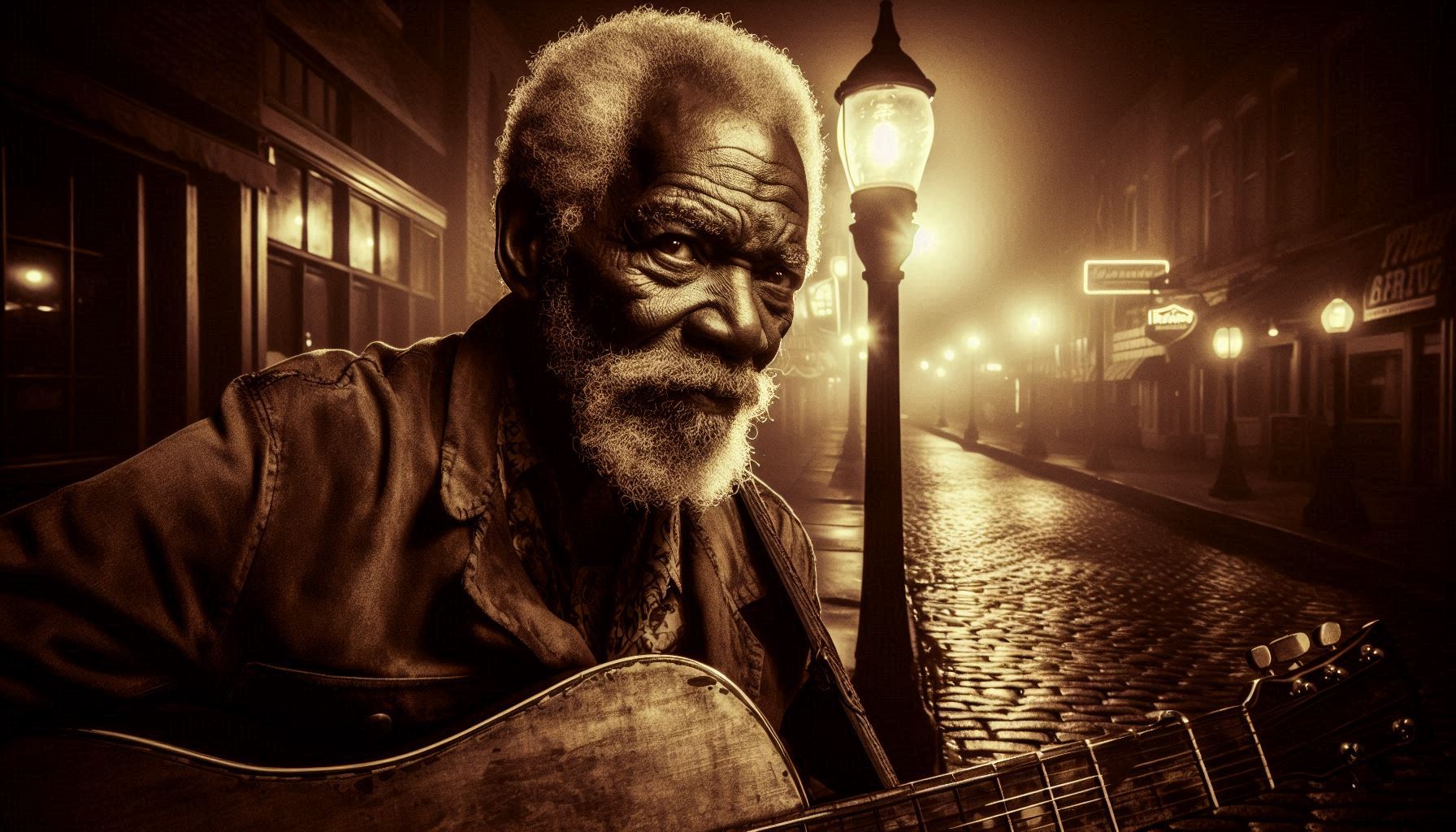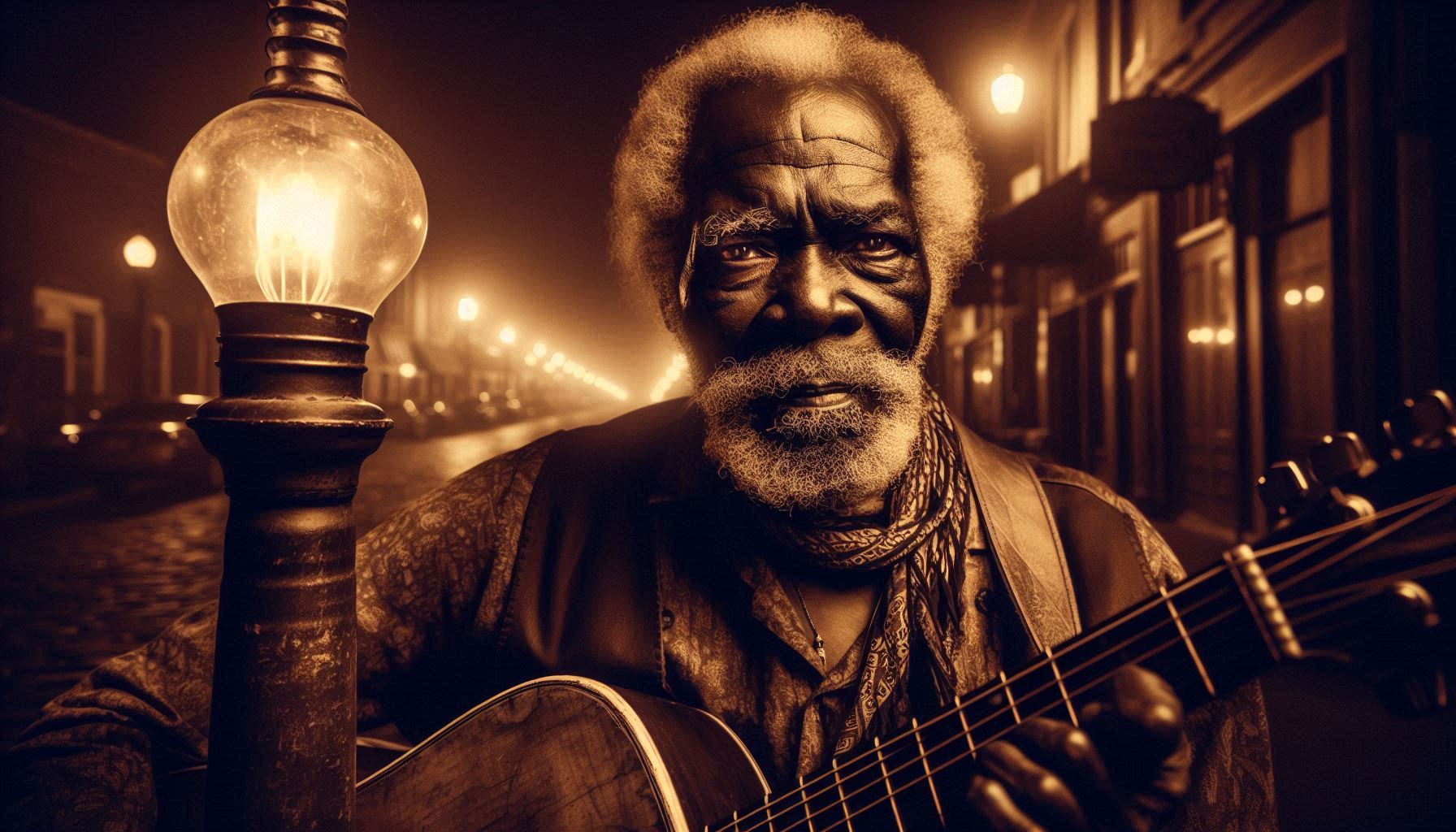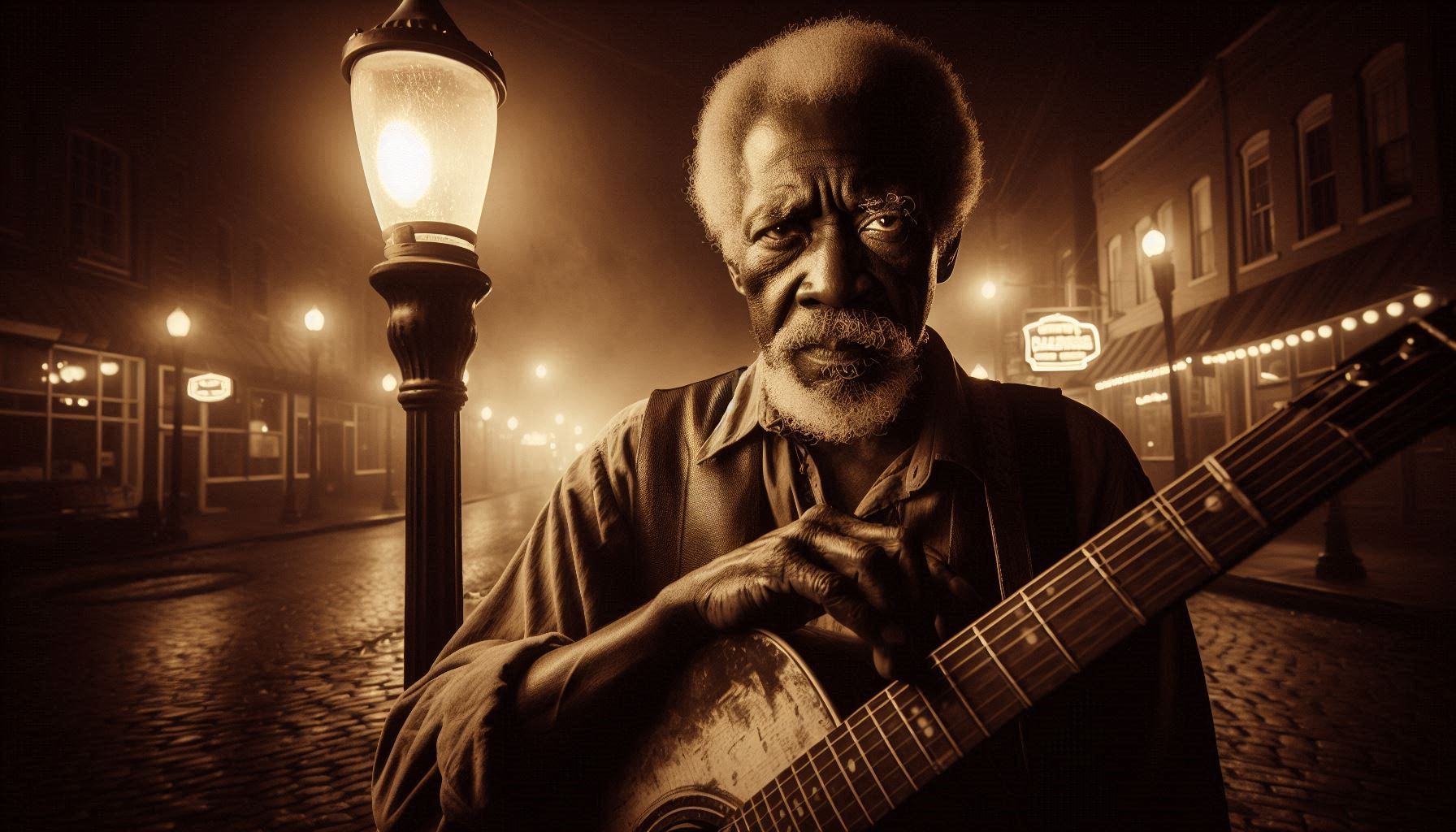


📖 The Life & Story of Ezekiel “Papa Zee” Johnson
Ezekiel Johnson, known to the world as "Papa Zee" was born in 1910 on a cotton plantation near Clarksdale, Mississippi. His father was a field hand, his mother a church singer. From her, young Ezekiel learned the old spirituals; from the fields, he learned the hollers and work chants that would shape his music.
By the time he was twelve, he had built a makeshift guitar from a cigar box and wire. Folks in his community noticed the boy had a voice not just any voice, but one that could cut through noise, rough and powerful, like a preacher with gravel in his throat.
In his teens, Ezekiel began drifting up and down the Mississippi Delta, playing at fish fries, juke joints, and Saturday night gatherings. His style blended the sorrow of the spirituals with the grit of the blues. People began calling him “Papa” because even at a young age, he carried himself with the wisdom and authority of an elder. The “Zee” came from his first name, Ezekiel, and soon enough, Papa Zee stuck.
During the 1930s and ’40s, he worked the same circuits as Son House, Robert Johnson, and Charley Patton, trading licks and learning from the masters. Unlike many of his peers, Papa Zee never chased fame. He played for the people, wherever he went, living lean and moving often.
In the early 1950s, like so many southern musicians, he moved to Chicago. There he plugged in, picking up an electric guitar and fronting a small combo. His voice deep, ragged, commanding was perfectly suited to the raw energy of Chicago clubs. Songs like “Papa Zee’s Got His Mojo” made him a local favorite, even if he never broke into the big record labels like Muddy Waters or Howlin’ Wolf.
By the late 1960s, as younger rock musicians began looking back to the blues, Papa Zee enjoyed a brief rediscovery. European fans loved his mix of Delta roots and Chicago power. A few live recordings from that era most notably “River Jordan Blues” survive today, offering a rare glimpse into his spiritual side.
Ezekiel “Papa Zee” Johnson passed quietly in the late 1980s, back in Mississippi. Though he never became a household name, those who heard him play never forgot it. His music carried the weight of the South hardship, faith, laughter, and survival all wrapped up in a single voice.
To this day, among blues aficionados, the name Papa Zee is spoken with respect a reminder of the countless unsung heroes who carried the blues from the fields to the city, leaving behind echoes that still shape the music we hear today.
Papa Zee – The Lost Bluesman
Though adored in South Side bars and Southern roadhouses, Papa Zee never achieved mainstream fame. When Delta Crown folded in the late 1970s, most of his recordings were boxed away in a warehouse. A fire and later flooding damaged much of the archive, and after his death in 1986, his catalog slipped into obscurity.
For decades, Papa Zee’s name was kept alive only in whispered stories and battered bootleg cassettes. Many believed his master tapes were lost forever.
But in the late 2010s, a crate of reels from the old Delta Crown archive surfaced at an estate sale in Memphis. Inside were session tapes, acetates, and even unreleased material. Painstakingly restored by blues archivists, these recordings brought Papa Zee’s voice and resonator guitar back to life for a new century.
Today, thanks to reissues, streaming, and a growing international following, Papa Zee is celebrated as one of the great “lost bluesmen” — a bridge between the Delta’s haunting roots and the electric roar of Chicago blues. His rediscovered legacy is now preserved for generations to come.